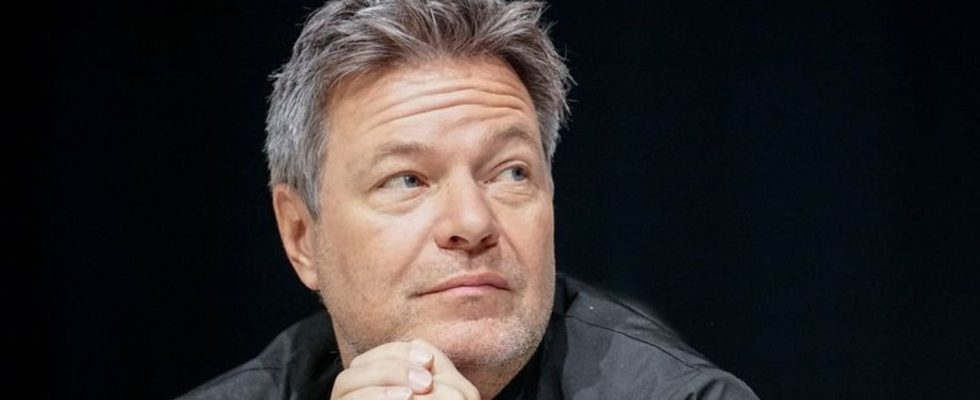Household
Ministers discuss budget crisis – reliability urged
Federal Minister Robert Habeck is speaking today with the economics and energy ministers of the federal states about the budget. photo
© Kay Nietfeld/dpa
What happens next after the Karlsruhe budget ruling? The federal and state energy and economics ministers are discussing this today. This is also likely to be about economic uncertainty.
The economist warns against discussions between the federal and state economics and energy ministers this Monday Marcel Fratzscher warns of withdrawing funding that has already been promised. “I expect that the federal government will fulfill all of its commitments without exception. Because if it does not do so, enormous economic damage will occur,” said the President of the German Institute for Economic Research (DIW) to the newspapers of the Funke media group.
The economics and energy ministers of the federal states speak with Federal Minister Robert Habeck (Greens) in Berlin about the effects of the Karlsruhe budget ruling. Afterwards, Habeck, the chairman of the Conference of Economic Ministers, Bavaria’s department head Hubert Aiwanger (Free Voters), and the chairman of the Energy Ministers’ Conference, Saxony-Anhalt’s department head Armin Willingmann (SPD), appear in front of the press. Chancellor Olaf Scholz (SPD) has announced a government statement for Tuesday.
According to the Federal Constitutional Court’s ruling, there is a large gap in the federal government’s finances. The court had declared a reallocation of Corona loans worth 60 billion euros from the 2021 budget to be null and void. Since the judges’ decision, there has been uncertainty – including about the consequences for the countries. After the ruling, Schleswig-Holstein, for example, identified a budget emergency for 2023 and 2024, because the state has also been working with emergency loans since the corona pandemic.
North Rhine-Westphalia’s Economics Minister Mona Neubaur said that advice must be given on how necessary subsidies can be financed. It is important to work together in alliances across party lines. The CDU and FDP in the federal government would also have to write this down.
Uncertainty about funding decisions
Fratzscher said that a significant part of the promised funding was for projects in structurally weak regions, especially in eastern Germany. “The federal government should immediately present a solution that gives everyone the security that their promises will be fulfilled.”
The second chairman of the industrial union IG Metall, Jürgen Kerner, also warned against suspending funding. “Companies are experiencing great uncertainty, with the result that future investments are not being made,” he also told the Funke newspapers.
Saxony-Anhalt’s Prime Minister Reiner Haseloff said on the ARD program “Anne Will” that after the Karlsruhe verdict, Scholz immediately contacted him and Saxony’s Prime Minister Michael Kretschmer to talk about funding for investments in the region. “And he told us clearly that he stands by these projects and will do everything to ensure that they come to fruition. And we take the Chancellor at his word.”
Debate about the debt brake
Before the deliberations, the debate about further suspending the debt brake continues. Fratzscher said the federal government should also suspend this next year.
SPD parliamentary group leader Rolf Mützenich also sees reasons to declare a budget emergency in 2024. When asked how he wanted to justify the emergency situation for 2024, Mützenich mentioned the war in Ukraine and the situation in the Middle East in the ARD program “Report from Berlin”, which it was unclear whether it would develop into a regional war.
SPD chairman Lars Klingbeil made similar comments on the ARD program “Anne Will”. He campaigned for a reform of the debt brake. Haseloff also sees opportunities to justify an emergency situation. The Federal Constitutional Court made a clear statement on household technology. “But there is scope for political determination of what constitutes an emergency.”
The left-wing parliamentary group leader Dietmar Bartsch called the debt brake in the editorial network Germany (RND) an investment brake that endangers the future of the country and exacerbates social division.
According to its parliamentary group leader Christian Dürr, the coalition partner FDP is in favor of the debt brake. “I am aware that the FDP is rather alone with its very clear stance that the debt brake must remain firmly in the Basic Law,” he said on Sunday evening in the ZDF program “Berlin Direkt”. There is no income problem at the federal and state levels, but rather a spending problem. The federal government will now negotiate where savings can be made.

